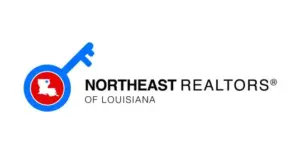Your reputation online is often the first handshake a client gets from you. Long before meeting you in person, buyers and sellers search your name, read reviews, and form an impression. In real estate, trust is everything.
A strong digital reputation brings steady leads, higher conversion rates, and more referrals. A weak one quietly pushes clients toward other agents.
Let’s breaks down how reputation works in real estate, what review platforms matter, how to build a reliable review process, and how to use WordPress tools to showcase feedback. You’ll also learn about handling negative reviews, staying compliant, and using data to tie reputation to business growth.
Why Online Reputation Shapes Real Estate Success
A handshake used to be enough. Today, most buyers start their search online. Reviews on Google, Zillow, Realtor.com, and Facebook often decide whether they’ll call you. Even one low rating can push them away, highlighting the urgency of managing your online reputation.
A good reputation does more than look nice: it changes how search engines rank you. Google favors agents with strong reviews when showing local search results. If your competitors have 50 recent reviews and you have five, guess who gets the phone calls?
Word spreads quickly online. When past clients share their positive experiences, those stories become social proof for prospects. Strong reviews build credibility with other professionals in your network, leading to more referrals and empowering you to stand out in a competitive market.
The Review Map: Platforms That Matter Most
Not all reviews are equal. Some platforms influence local SEO, while others matter more in the real estate niche.
- Google Business Profile (GBP): This profile appears on Google Maps and searches. Reviews here strongly impact local rankings.
- Zillow & Realtor.com: Buyers trust these because they already browse listings there. Agents with verified reviews stand out.
- Facebook Recommendations: A casual but powerful space where people often ask friends for referrals.
- Local directories (Yelp, BBB): Some clients still check them, especially for professionalism and dispute history.
Each site has its own rules. For example, Google forbids filtering reviews (called “gating”) or offering incentives. Yelp discourages asking for reviews at all. Staying within these guidelines not only keeps your reviews safe from removal but also ensures that you operate securely and competently.
Building a Review Engine: Ask at the Right Time
The key to consistent reviews is treating them like any other part of your closing checklist. Please don’t leave it to chance.
When to ask:
The best time is right after a high point: on closing day, accepting an offer, or wrapping up a smooth transaction. Clients are happiest then and more likely to respond.
How to ask:
Keep it short and direct. Send one email and, if comfortable, one SMS reminder. Include links that go straight to your review profiles.
Where to point them:
- Google first (local search boost)
- Zillow or Realtor.com second (industry credibility)
Guide clients on what to write, such as how you handled communication, local knowledge, or negotiation.
Sample email:
“Hi [Name], I loved working with you on your home in [Neighborhood]. If you could share a quick review, it would help other families find an agent they can trust. Here’s the link: [Google link]. If you have another minute, [Zillow link]. Thanks again!”
Responding Like a Pro
Reviews aren’t one-way. Your replies matter almost as much as the review itself. They show potential clients how you treat people.
For positive reviews:
- Thank them personally by name.
- Mention one detail from their experience.
- Keep it short (2–3 sentences).
For negative reviews:
- Stay calm and polite.
- Acknowledge their frustration.
- Offer to talk offline.
- Avoid arguing in public.
Example:
“Hi [Name], I’m sorry to hear this. I’d like to understand more and find a solution. Could you reach me directly at [phone/email]? Thank you for the feedback.”
Handled well, even a negative review can show your professionalism and sometimes turn critics into advocates.
Using WordPress to Showcase Reviews
Your website is the one place you fully control. While reviews scattered across platforms are powerful, centralizing them on your site makes them part of your marketing.
Create a Reviews Page:
- Gather Google, Zillow, and Facebook reviews.
- Use screenshots or embed plugins that pull reviews live.
- Add dates and names when possible for authenticity.
Inline testimonials:
Drop a few on your homepage, service pages, or neighborhood guides. A review beside a call-to-action button increases trust at decision points.
Plugins that help:
- Site Reviews or WP Customer Reviews for manual testimonials.
- Widgets for Google Reviews to pull in live Google feedback.
- WPForms or Gravity Forms are used to collect private feedback.
Schema markup:
Add structured data (Review or AggregateRating schema) to help Google read your reviews. Plugins like Rank Math or Yoast SEO can handle this. Mark up only what’s visible on the page—no fake ratings.
Monitoring and Automation
Manually checking reviews works when you’re small but gets messy as you grow. A light system keeps things in order.
Simple workflow:
- Weekly check of Google, Zillow, Realtor.com, and Facebook.
- Notifications turned on for new reviews.
- Responses within 48 hours.
Automation options:
- CRM integrations that send post-closing review requests.
- Services that aggregate reviews into one dashboard.
- WordPress automations (via Uncanny Automator or AutomatorWP) to send reminders after a form submission.
Stick to tools that follow platform rules. Anything that filters out negative reviews puts your profile at risk.
When Things Go Wrong: The Crisis Playbook
Even great agents get hit with unfair or fake reviews. Having a plan helps you respond quickly.
Steps to follow:
- Acknowledge once, then move the discussion offline.
- Keep notes on the date, client name, and what was discussed.
- If the review violates policy (spam, competitor post, irrelevant content), flag it and submit a dispute.
Social media requires extra care. If a post about you starts gaining attention, respond with empathy, share a factual statement, and avoid fueling arguments. Consistency across platforms keeps your message clear.
Measuring Success and ROI
The value of your reputation strategy shows up when you tie it to real outcomes. Tracking the number of reviews is a start, but it doesn’t paint the whole picture. What matters is how recent those reviews are, how quickly you respond, and whether prospects who read them reach out. A steady flow of feedback on multiple platforms keeps your profile active in search results and gives clients confidence that you’re still engaged in the market.
Even small changes make a difference. Agents often see more inquiries when their average rating climbs by just one star. Considering the size of a typical commission, that bump can significantly impact annual revenue. Reputation isn’t just about looking good. Ot’s a measurable driver of business growth.
Costs and Tools for Different Team Sizes
Managing reputation doesn’t have to be expensive, but the approach changes with the size of your business. Independent agents and small teams usually get the most value from affordable tools that automate requests and track feedback in one place.
Mid-sized agencies often move toward more advanced platforms that add analytics, allowing them to manage multiple profiles at scale. Larger brokerages sometimes invest in enterprise systems that combine reputation monitoring with public relations support, especially when managing dozens of agents under one brand.
If you’re already using WordPress, you may find that plugins cover much of what you need at a fraction of the cost. With the proper setup, even a solo agent can automate review requests, display testimonials on their site, and monitor responses without the overhead of oversized software packages. The key is matching the toolset to your current stage, not someone else’s.
Future Trends in Reviews
The way clients share and consume feedback is shifting quickly. Artificial intelligence is already part of many platforms, suggesting responses and spotting patterns that help agents catch minor issues before they become bigger problems. Video testimonials are also gaining ground, giving prospects a chance to see and hear past clients describe their experience in a more personal way than text alone can offer.
Another change is how reviews intersect with search. As more people use voice assistants to find services, structured data on your website becomes more important. Agents who prepare now by organizing their testimonials and adding schema markup will be easier to discover when someone says, “Find a top-rated real estate agent near me.” Staying ahead of these shifts means treating reputation as an ongoing project, not a one-time task.
Compliance Notes You Can’t Skip
Reviews are powerful, but mishandling them can hurt your brand or create legal trouble.
- Don’t pay or give gifts for reviews. It violates Google and Yelp rules, and the FTC can take action.
- Don’t “gate” by only asking happy clients. Everyone should get the same request.
- Keep written consent if you publish testimonials on your site or in ads.
Following these rules protects you and ensures reviews stick around.
One-Page Checklist
- Ask for reviews after closing, using direct links.
- Send one email and one SMS, with no incentives or filtering.
- Publish reviews on your WordPress site with schema markup.
- Reply to every review, positive or negative.
- Monitor weekly and respond within 48 hours.
- Track review counts, ratings, and conversions tied to reviews.
- Have a crisis plan: acknowledge, move offline, document, flag policy violations.
Online reputation isn’t an optional add-on. For real estate agents, it’s part of the foundation of business growth. Reviews shape first impressions, improve search visibility, and build trust before you ever meet a client.
Table of Contents







